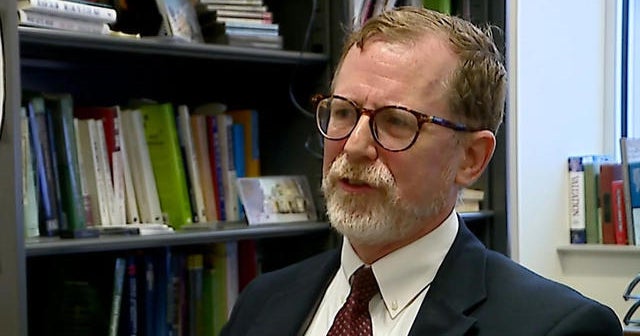Leadership Shakeup: Boston University’s Antiracist Research Center Faces Closure
In a surprising turn of events, Boston University’s Antiracist Research Center is facing an impending shutdown, coinciding with the resignation of its founder. This leadership shakeup not only casts a shadow over the future of the center but also raises critical questions about the sustainability and longevity of antiracist initiatives within academic institutions. As discussions around race, equity, and justice continue to gain momentum, the closure of such a pivotal center marks a significant moment in the ongoing struggle for social justice in academia.
The Background of the Antiracist Research Center
Established in 2020, Boston University’s Antiracist Research Center aimed to address systemic racism through research and education. With a mission to promote antiracist scholarship and action, the center sought to collaborate with various stakeholders, including students, faculty, and community organizations. The founder, a prominent figure in the field of racial studies, was instrumental in developing initiatives that highlighted the impact of racism in various sectors, such as education, health care, and law enforcement.
Over the years, the center gained national attention for its groundbreaking research, which often influenced policy discussions and community strategies aimed at combating racism. It also provided a platform for scholars and activists to share their findings and experiences, fostering a culture of collaboration and dialogue. However, the recent announcement of its potential closure raises urgent concerns about the future of such centers across the country.
Implications of the Leadership Shakeup
The resignation of the center’s founder, coupled with the announcement of an impending shutdown, presents a complex scenario for Boston University and the broader academic community. This leadership shakeup could have significant implications for ongoing antiracist initiatives, including:
- Research Disruption: The closure may halt ongoing research projects aimed at uncovering and addressing systemic racism, leaving important questions unanswered.
- Loss of Collaboration: The center served as a hub for collaboration among scholars, students, and community leaders. Its closure may dismantle these crucial networks.
- Impact on Students: Students engaged in antiracist studies might find fewer resources and mentorship opportunities, potentially stunting their academic and professional growth.
- Shift in University Priorities: The decision to close the center may signal a broader shift in the university’s commitment to diversity and inclusion initiatives.
The Future of Antiracist Initiatives in Academia
As the news of the Antiracist Research Center’s potential closure reverberates, it prompts a critical examination of the future of antiracist initiatives in academic settings. The challenges faced by the center are not unique; similar institutions across the nation also grapple with funding constraints, administrative support, and political pressures. Here are some potential paths forward for antiracist initiatives:
- Increased Funding and Support: Universities must prioritize funding for antiracist research and programs. Establishing dedicated endowments or grants can provide the necessary resources for sustainability.
- Community Engagement: Strengthening ties with local communities can enhance the relevance of research and ensure that it addresses real-world issues. Collaborative projects can create a symbiotic relationship between academia and the public.
- Interdisciplinary Approaches: Antiracist work thrives on diverse perspectives. Encouraging interdisciplinary research can lead to innovative solutions to complex issues surrounding race and equity.
- Advocacy and Awareness: Scholars and activists must continue to raise awareness about the importance of antiracist initiatives. Engaging in public discourse and advocacy can help garner support from a wider audience.
Lessons Learned from the Closure
The potential closure of Boston University’s Antiracist Research Center serves as a stark reminder of the fragility of social justice initiatives within academic institutions. Several lessons can be drawn from this situation:
- The Importance of Institutional Commitment: Sustainable antiracist initiatives require unwavering support from university leadership. Institutions must embed diversity, equity, and inclusion into their core mission and values.
- Building Resilient Networks: Collaborations between various stakeholders can create a more robust support system for antiracist efforts. By fostering relationships across disciplines and communities, initiatives can withstand changes in leadership or funding.
- Engaging the Next Generation: Empowering students to take an active role in antiracist work ensures the continuity of these initiatives. Providing platforms for student voices can help sustain momentum.
Conclusion: A Call for Resilience and Innovation
The leadership shakeup at Boston University’s Antiracist Research Center and the potential for its closure highlight critical challenges facing antiracist initiatives in academia. However, it is essential to view this moment not just as a setback but as an opportunity for reflection and innovation. By learning from the past and embracing resilience, academic institutions can continue to play a vital role in the fight against systemic racism.
As the conversation around race and equity continues to evolve, the commitment of universities to antiracist research and action must remain steadfast. The future of these initiatives depends on collective efforts, innovative thinking, and a shared vision of a more equitable society. The journey towards justice is ongoing, and while this leadership shakeup is significant, it should inspire a renewed dedication to combating racism in all its forms.
In the face of this uncertainty, the academic community must rally together, reaffirming its commitment to fostering environments where diversity and inclusion are not just ideals, but lived realities. The legacy of the Antiracist Research Center, should it close, can serve as a powerful reminder of the work that remains to be done and the transformative potential of antiracist scholarship.
See more TED Talks World



